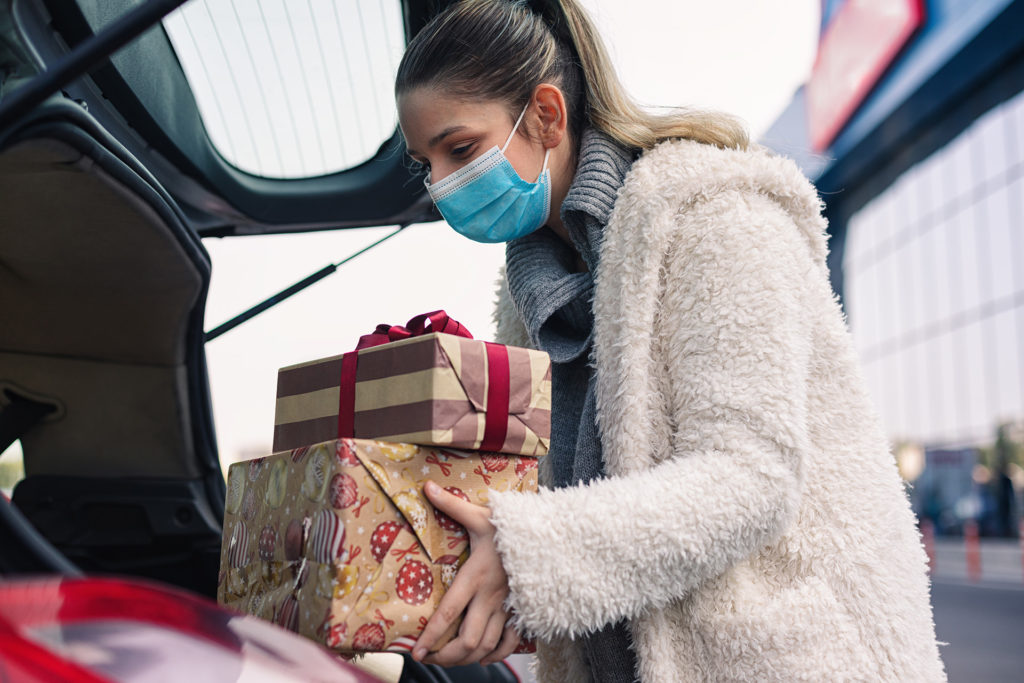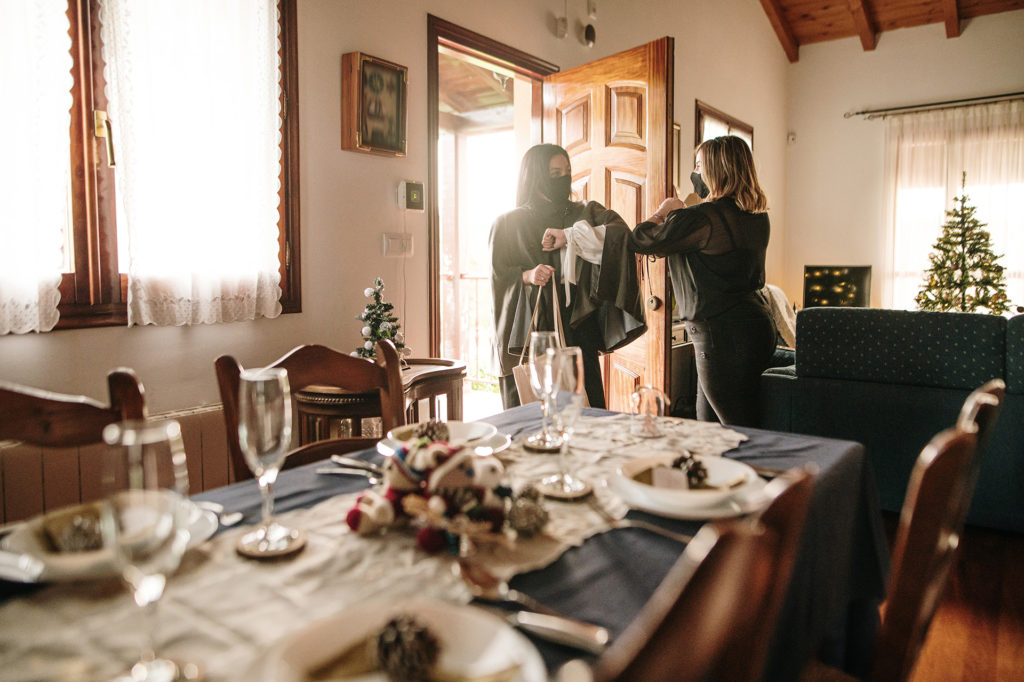Actions
Type
Topic
- COVID-19
- Disease Management
- Safety
Tags
The American Hospital Association, American Medical Association and American Nurses Association released an open letter to the American people regarding the holiday season.
The following FAQs are referenced from the Centers of Disease Control and Prevention:
https://www.cdc.gov/coronavirus/2019-ncov/daily-life-coping/holidays.html
Should I travel on holidays during the COVID-19 pandemic?
If you decide to travel, follow these safety measures during your trip to protect yourself and others from COVID-19:
- Wear a mask in public settings, like on public and mass transportation, at events and gatherings, and anywhere you will be around other people.
- Avoid close contact by staying at least 6 feet apart (about 2 arm lengths) from anyone who is not from your household.
- Wash your hands often with soap and water for at least 20 seconds, or use hand sanitizer (with at least 60% alcohol).
- Avoid contact with anyone who is sick.
- Avoid touching your face mask, eyes, nose and mouth.

Are small gatherings safe during the COVID-19 pandemic?
Organizers and attendees of larger events should consider the risk of virus spread based on event size (number of attendees and other factors) and take steps to reduce the possibility of infection, as outlined in the CDC’s Considerations for Events and Gatherings.
There are several factors that contribute to the risk of getting and spreading COVID-19 at small in-person gatherings.

In combination, these factors will create various amounts of risk:
- Community levels of COVID-19 — High or increasing levels of COVID-19 cases in the gathering location, as well as in the areas where attendees are coming from, increase the risk of infection and spread among attendees. Family and friends should consider the number of COVID-19 cases in their community and in the community where they plan to celebrate when deciding whether to host or attend a gathering. Information on the number of cases in an area often can be found on the local health department website.
- Exposure during travel — Airports, bus stations, train stations, public transport, gas stations and rest stops all are places travelers can be exposed to the virus in the air and on surfaces.
- Location of the gathering — Indoor gatherings, especially those with poor ventilation (for example, small enclosed spaces with no outside air), pose more risk than outdoor gatherings.
- Duration of the gathering — Gatherings that last longer pose more risk than shorter gatherings. Being within 6 feet of someone who has COVID-19 for a cumulative total of 15 minutes or more in a 24-hour period greatly increases the risk of becoming sick and requires a 14-day quarantine.
- Number and crowding of people at the gathering — Gatherings with more people pose more risk than gatherings with fewer people. The CDC does not have a limit or recommend a specific number of attendees for gatherings. The size of a holiday gathering should be determined based on the ability of attendees from different households to stay 6 feet (2 arm lengths) apart; wear masks; wash hands; and follow state, local, territorial or tribal health and safety laws, rules and regulations.
- Behaviors of attendees prior to the gathering — Individuals who did not consistently adhere to social distancing (staying at least 6 feet apart), mask-wearing, handwashing and other prevention behaviors pose more risk than those who consistently practiced these safety measures.
- Behaviors of attendees during the gathering — Gatherings with more safety measures in place, such as mask-wearing, social distancing and handwashing, pose less risk than gatherings where fewer or no preventive measures are being implemented. Use of alcohol or drugs may alter judgment and make it more difficult to practice COVID-19 safety measures.
Who should not attend small gatherings?
The following people should not attend in-person holiday gatherings.
People with or exposed to COVID-19
Do not host or participate in any in-person gatherings if you or anyone in your household:
- has been diagnosed with COVID-19 and has not met the criteria for when it is safe to be around others
- has symptoms of COVID-19
- is waiting for COVID-19 viral test results
- may have been exposed to someone with COVID-19 in the last 14 days
- is at increased risk of severe illness from COVID-19
Do not host or attend gatherings with anyone who has COVID-19 or has been exposed to someone with COVID-19 in the last 14 days.

People at increased risk for severe illness
If you are an older adult or person with certain medical conditions who is at increased risk of severe illness from COVID-19, or live or work with someone at increased risk of severe illness, you should avoid in-person gatherings with people who do not live in your household.
Avoid these higher-risk activities to help prevent the spread of the virus that causes COVID-19:
- going shopping in crowded stores just before, on or after Thanksgiving
- participating or being a spectator at a crowded race
- attending crowded parades
- attending large indoor gatherings with people from outside of your household
- using alcohol or drugs that may alter judgment and make it more difficult to practice COVID-19 safety measures









